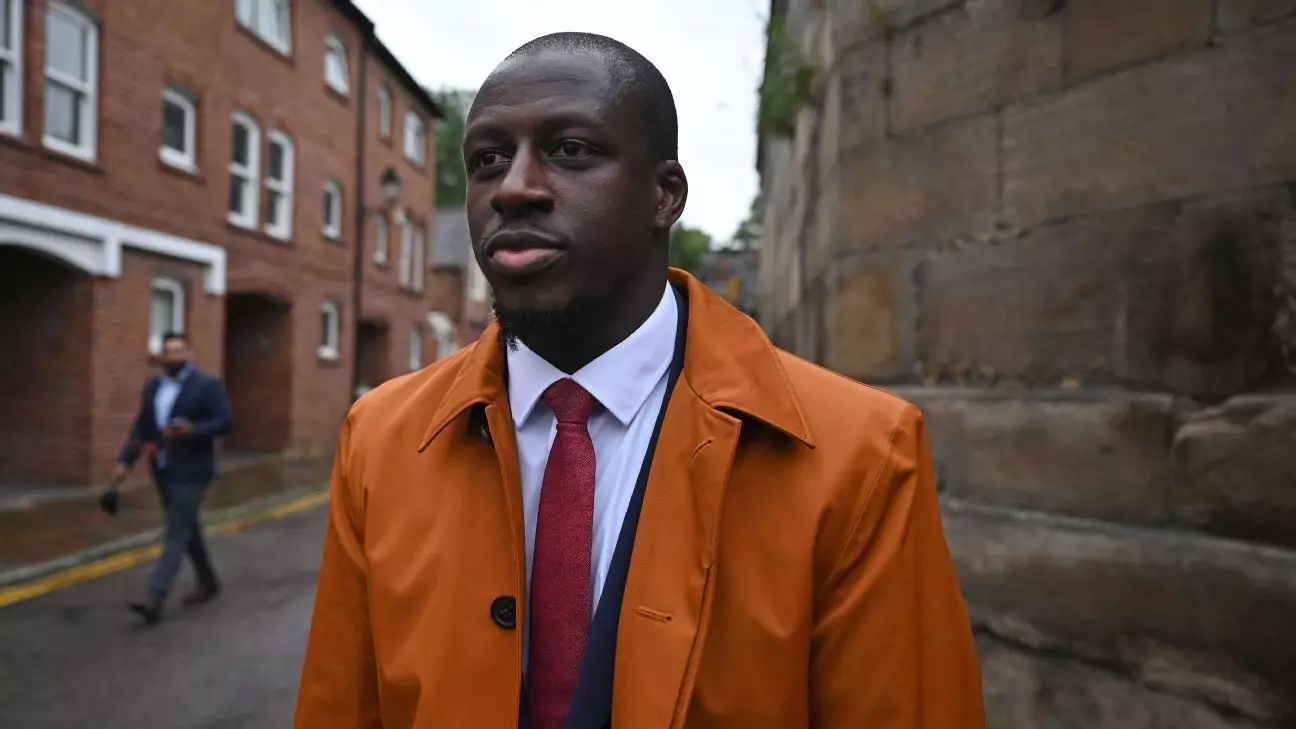Benjamin Mendy, the former Manchester City defender, has successfully concluded a significant legal battle against the Premier League club concerning over £11 million in unpaid wages. This legal skirmish began after Manchester City halted Mendy’s salary payments in September 2021, coinciding with the start of serious criminal charges against him. While Mendy’s professional career was thrown into turmoil, he faced allegations ranging from rape to sexual assault, which ultimately led to a lengthy trial. After navigating a tumultuous judicial process, Mendy was acquitted of all charges in January 2023, albeit at a significant personal and professional cost.
Claims and Counterclaims
In his lawsuit, Mendy contended that Manchester City had unlawfully withheld his wages as part of his contractual compensation, arguing he was promised payment following his exoneration. Contrarily, the club’s legal representation posited that Mendy’s inability to fulfill his playing responsibilities due to his pre-trial detention justified their decision to suspend his pay. They contended that his time in custody, which amounted to five months within the broader context of the lawsuit’s 22-month timeframe, meant that the club was within its rights to withhold wages during that period.
In her ruling, Judge Joanne Dunlop acknowledged the complexities of the case. While she stated that Mendy was entitled to recover some, but not all, of the wages he sought, she clarified that City was justified in withholding pay during the months of his custody. However, for the times he was not incarcerated, the judge recognized that he was “ready and willing to work,” yet prevented from doing so due to circumstances beyond his control—including his suspension by the Football Association. This nuance highlights the intrinsic tensions between contractual obligations and the outcomes of legal situations that players like Mendy can face.
The Future for Mendy
Following the court’s decision, Mendy expressed relief and a desire for Manchester City to settle the owed wages promptly. His statement showed a willingness to move past a challenging chapter of his life, hoping for closure not just financially but also emotionally. After joining the club from AS Monaco in 2017 for a substantial fee and an impressive salary, the enduring impact of these events on his career prospects remains a poignant consideration.
This case sheds light on the sometimes murky intersection of legal issues and professional sports contracts. It raises profound questions about how clubs handle player contracts in the face of legal accusations. Mendy’s situation is not merely a personal narrative; it reflects wider concerns about player rights, the repercussions of legal battles on careers, and how clubs navigate their obligations to athletes during uncertain times. As Mendy embarks on a new chapter with the French club Lorient, the outcomes of this case will likely resonate across the football industry, prompting discussions about fairness and ethical practices in player management.

